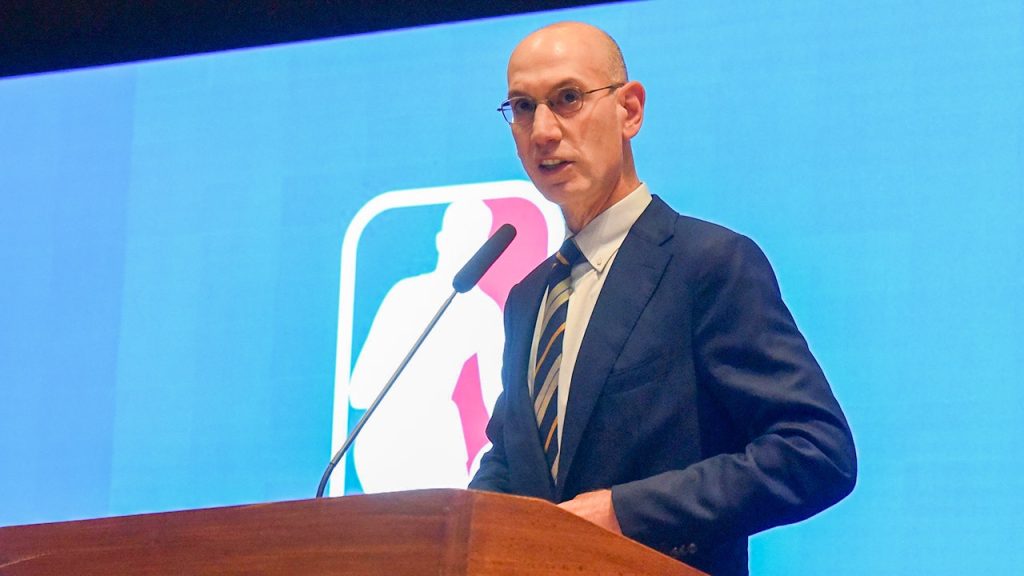Two United States senators, Marsha Blackburn and Jeff Merkley, have accused the NBA of prioritizing profit over principle in a letter sent to commissioner Adam Silver. Their concerns were prompted by an ESPN report detailing the league’s relationship with Rwandan dictator Paul Kagame. Despite Kagame’s human rights abuses in Rwanda, the NBA needed his help to establish the Basketball Africa League, its first league outside North America. The letter criticized the NBA for developing relationships with dictators and despots, while also questioning the league’s ties to China, an issue that has long been controversial.
Blackburn and Merkley’s letter highlighted the NBA’s contradictory actions, as the league presents itself as a beacon of social justice but engages with political leaders known for human rights violations. They specifically condemned the NBA’s partnership with Kagame, who is accused of silencing opposition and the free press through imprisonment, disappearances, and murder. The senators also raised concerns about the NBA’s extensive financial interests in China, where human rights abuses, particularly against Uyghur Muslims, have been well-documented. The letter called on Silver to address these issues and explain the nature of the NBA’s relationships with both the Rwandan government and China.
In response to the senators’ criticisms, NBA deputy commissioner Mark Tatum defended the league’s interactions with Kagame, emphasizing a focus on improving the lives of Rwandans through basketball. He described the conversations with Kagame as centered on creating, inspiring, and connecting people through the game of basketball to benefit Rwandans. Despite Tatum’s explanations, Blackburn and Merkley reiterated their belief that it is not appropriate for the NBA to engage with dictators and oppressive regimes. They argued that the league should use its influence to advocate for governance reforms and uphold the rule of law instead of aligning with authoritarian figures.
Established in 2019 by the NBA and the International Basketball Federation (FIBA), the Basketball Africa League has become a significant enterprise with a season running from March to May. Featuring 12 teams in its current format, the league has seen participation from 24 teams representing 19 countries since its inception. The league’s expansion into Africa signifies the NBA’s international outreach and efforts to promote basketball on a global scale. However, the controversy surrounding the league’s partnerships with questionable political leaders raises ethical concerns that must be addressed by the NBA and its leadership.
The ongoing dialogue between the NBA and Kagame, as well as the league’s connections in China, have emerged as controversial topics that shed light on the complexities of sports diplomacy. While the NBA aims to use basketball as a vehicle for positive change and community development, its dealings with authoritarian regimes raise questions about the alignment of its values and actions. The scrutiny from Blackburn and Merkley underscores the importance of ethical considerations in international sports partnerships and the role of sports organizations in advocating for human rights and social justice. In navigating these challenges, the NBA faces a delicate balance between pursuing business opportunities and upholding its commitment to ethical principles and social responsibility.


